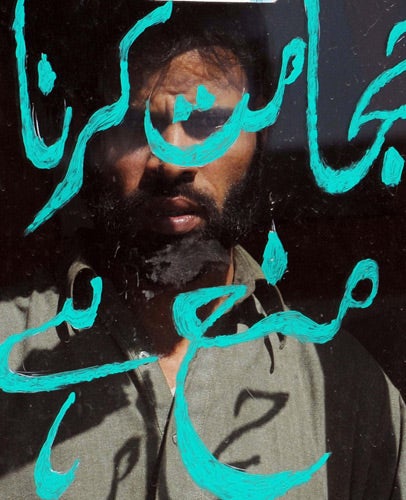Pakistan scrambles to repel Taliban advance
Swat Valley peace deal blamed as government forces come under fire from insurgents 60 miles from capital

The Taliban has seized control of an area just 60 miles from the Pakistani capital Islamabad, provoking fears that militants are attempting to spread their insurgency – and with it their extreme brand of Islam – across the country.
Pakistani forces came under fire yesterday as they attempted to wrest back control of the strategically important district of Buner. The seizure by militants of the district in recent days underlines the strength of the insurgency and its ability to advance from the neighbouring Swat Valley which the Taliban controls, into the heart of Pakistan. Two policemen and a soldier were gunned down as six platoons of the Frontier Constabulary, a paramilitary force, were despatched to Buner to attempt to secure government buildings and bridges.
The push by the Taliban and the associated violence has raised alarm in Washington. Robert Gates, the US Defence Secretary, yesterday warned of the "existential threat" to the democratic government of Pakistan and called on the country's political leaders to take action to deal with it.
His comments came a day after Hillary Clinton, the US Secretary of State, blasted the Pakistani leadership for "abdicating" to the Taliban by allowing it to impose Sharia law in the Swat Valley. She said Pakistan now presented "a mortal threat" to the rest of the world. The Swat peace deal has meanwhile allowed the Taliban to regroup and solidify their base.
Fears of a threat to the Pakistani state have never seriously been entertained within the country – until now. "Pakistan is on the precipice, we are really worried," said one Punjabi opposition politician. "We are worried about Swat, the tribal areas, and beyond. The Taliban are making their way into Punjab."
Against a backdrop of fierce criticism, the Pakistani parliament voted to impose Islamic law across a swathe of the north-west ten days ago, bowing to Taliban demands in return for a promise of peace in the scenic Swat Valley. The Pakistani army was forced to halt its faltering military operation in February after the Taliban seized more than four-fifths of the valley through a brutal campaign of beheadings, school burnings, and kidnappings.
In recent days, Taliban militants have used Swat as a staging ground for incursions into Buner. They have taken over the shrine of Pir Baba, a venerated Sufi saint, and established a makeshift sharia court. Masked gunmen have also erected checkpoints, begun patrolling the streets and barring women from public places. In scenes starkly reminiscent of the Taliban's takeover of Swat, hundreds of local residents, some of whom formed an anti-Taliban local militia to rebuff an encroachment last year, have fled.
Six soldiers and four ambulance workers were kidnapped on Monday from different parts of the valley. Government employees have been forced out of their offices and local courts have closed. Residents said that heavily armed gunmen had driven out aid workers and forced the police to retreat to their stations. Television images showed the militants throwing office furniture out. And local media reports said that a group of gunmen had spread also into neighbouring Shangla district.
In the strongest rebuke yet from an American official, Mrs Clinton said on Wednesday: "I think that the Pakistani government is basically abdicating to the Taliban and to the extremists."
Earlier this week, Pakistan's former prime minister Nawaz Sharif, whose party voted for the imposition of Islamic law, broke his silence to warn of the Taliban's gathering strength. "They are now threatening to get out of Swat and take other areas into their custody." Prime Minister Yousaf Raza Gilani told reporters yesterday that the government had acceded to the peace deal with the Taliban in the Swat Valley on the advice of a secular party that controls the Northwest Frontier's provincial government. But he warned that "if peace is not restored... and there are attempts to take forward Talibanisation, certainly we reserve the right of other options as well".
But while a more sophisticated military approach is needed, force alone cannot halt the insurgency, analysts believe. The government will need to win back the support of its people. The militants have exploited local economic grievances effectively, feeding on the state's decades-long neglect of its poor.
Join our commenting forum
Join thought-provoking conversations, follow other Independent readers and see their replies
Comments
Bookmark popover
Removed from bookmarks